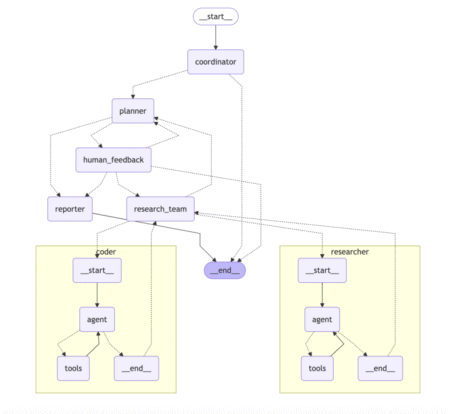Precision therapy has emerged as a critical approach in healthcare, tailoring treatments to individual patient profiles to optimise outcomes while reducing risks. However, determining the appropriate medication involves a complex analysis of numerous factors: patient characteristics, comorbidities, potential drug interactions, contraindications, current clinical guidelines, drug mechanisms, and disease biology. While Large Language Models (LLMs) have demonstrated therapeutic task capabilities through pretraining and fine-tuning medical data, they face significant limitations. These models lack access to updated biomedical knowledge, frequently generate hallucinations, and struggle to reason reliably across multiple clinical variables. Also, retraining LLMs with new medical information proves computationally prohibitive due to catastrophic forgetting. The models also risk incorporating unverified or deliberately misleading medical content from their extensive training data, further compromising their reliability in clinical applications.
Tool-augmented LLMs have been developed to address knowledge limitations through external retrieval mechanisms like retrieval-augmented generation (RAG). These systems attempt to overcome hallucination issues by fetching drug and disease information from external databases. However, they still fall short in executing the multi-step reasoning process essential for effective treatment selection. Precision therapy would benefit significantly from iterative reasoning capabilities where models could access verified information sources, systematically evaluate potential interactions, and dynamically refine treatment recommendations based on comprehensive clinical analysis.
Researchers from Harvard Medical School, MIT Lincoln Laboratory, Kempner Institute for the Study of Natural and Artificial Intelligence, Harvard University, Broad Institute of MIT and Harvard, and Harvard Data Science Initiative introduce TXAGENT, representing an innovative AI system delivering evidence-grounded treatment recommendations by integrating multi-step reasoning with real-time biomedical tools. The agent generates natural language responses while providing transparent reasoning traces that document its decision-making process. It employs goal-driven tool selection, accessing external databases and specialized machine learning models to ensure accuracy. Supporting this framework is TOOLUNIVERSE, a comprehensive biomedical toolbox containing 211 expert-curated tools covering drug mechanisms, interactions, clinical guidelines, and disease annotations. These tools incorporate trusted sources like openFDA, Open Targets, and the Human Phenotype Ontology. To optimize tool selection, TXAGENT implements TOOLRAG, an ML-based retrieval system that dynamically identifies the most relevant tools from TOOLUNIVERSE based on query context.
TXAGENT’s architecture integrates three core components: TOOLUNIVERSE, comprising 211 diverse biomedical tools; a specialized LLM fine-tuned for multi-step reasoning and tool execution; and the TOOLRAG model for adaptive tool retrieval. Tool compatibility is enabled through TOOLGEN, a multi-agent system that generates tools from API documentation. The agent undergoes fine-tuning with TXAGENT-INSTRUCT, an extensive dataset containing 378,027 instruction-tuning samples derived from 85,340 multi-step reasoning traces, encompassing 177,626 reasoning steps and 281,695 function calls. This dataset is generated by QUESTIONGEN and TRACEGEN, multi-agent systems that create diverse therapeutic queries and stepwise reasoning traces covering treatment information and drug data from FDA labels dating back to 1939.
TXAGENT demonstrates exceptional capabilities in therapeutic reasoning through its multi-tool approach. The system utilizes numerous verified knowledge bases, including FDA-approved drug labels and Open Targets, to ensure accurate and reliable responses with transparent reasoning traces. It excels in four key areas: knowledge grounding using tool calls, retrieving verified information from trusted sources; goal-oriented tool selection through the TOOLRAG model; multi-step therapeutic reasoning for complex problems requiring multiple information sources; and real-time retrieval from continuously updated knowledge sources. Importantly, TXAGENT successfully identified indications for Bizengri, a drug approved in December 2024, well after its base model’s knowledge cutoff, by querying the openFDA API directly rather than relying on outdated internal knowledge.
TXAGENT represents a significant advancement in AI-assisted precision medicine, addressing critical limitations of traditional LLMs through multi-step reasoning and targeted tool integration. By generating transparent reasoning trails alongside recommendations, the system provides interpretable decision-making processes for therapeutic problems. The integration of TOOLUNIVERSE enables real-time access to verified biomedical knowledge, allowing TXAGENT to make recommendations based on current data rather than static training information. This approach enables the system to stay current with newly approved medications, assess appropriate indications, and deliver evidence-based prescriptions. By grounding all responses in verified sources and providing traceable decision steps, TXAGENT establishes a new standard for trustworthy AI in clinical decision support.
Check out the Paper, Project Page and GitHub Page. All credit for this research goes to the researchers of this project. Also, feel free to follow us on Twitter and don’t forget to join our 85k+ ML SubReddit.
The post TxAgent: An AI Agent that Delivers Evidence-Grounded Treatment Recommendations by Combining Multi-Step Reasoning with Real-Time Biomedical Tool Integration appeared first on MarkTechPost.
Source: Read MoreÂ

